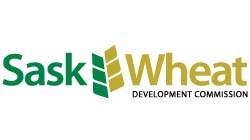The Saskatchewan Wheat Development Commission (Sask Wheat) has received the latest of its commissioned reports on the export basis numbers for grain within the Canadian transportation and handling system, and the numbers do not reflect good news for Canadian grain producers, says Bill Gehl, Sask Wheat Board Chair. “Rail transportation and handling capacity has not improved and this is С����Ƶ reflected in even lower returns for producers and a lower share of export values as the year progresses,” he says.
The most recent numbers, as of February 11, show that even though FOB Vancouver prices for wheat are virtually unchanged to slightly higher, the primary elevator price has dropped an additional $20/mt since October.
That is, the excess basis cost for producers, relative to the posted costs for rail freight and primary and terminal elevator charges, is now over $62/mt, compared to $40/mt in October of last year.
“Producers are having to involuntarily carry inventories over into the next crop year and are losing $40 to $60, relative to the export market returns, on every tonne they market in 2014/15,” Gehl says. “To break this down, if you are a producer who markets 2,000 tonnes a year, you are losing between $80,000 and $120,000 in 2014/15, depending on when you marketed your grain.”
“This also means that our estimated $2 billion aggregate loss for Western Canadian producers in 2014/15 will have to be re-calculated as the year progresses, as this is now a significant underestimate,” Gehl says.
Last year, Sask Wheat partnered with the Agricultural Producers of Saskatchewan (APAS), Sask Barley, and Sask Pulse to submit recommendations to the CTA review panel, which included the creation of an oversight committee including producers, as well as more information transparency in terms of pricing. (The complete report is available at www.saskwheatcommission.com.) These organizations will continue to work together to ensure producer voices are heard at a national level, Gehl says. “These new numbers only reinforce the need for improved government regulations of the industry.”




